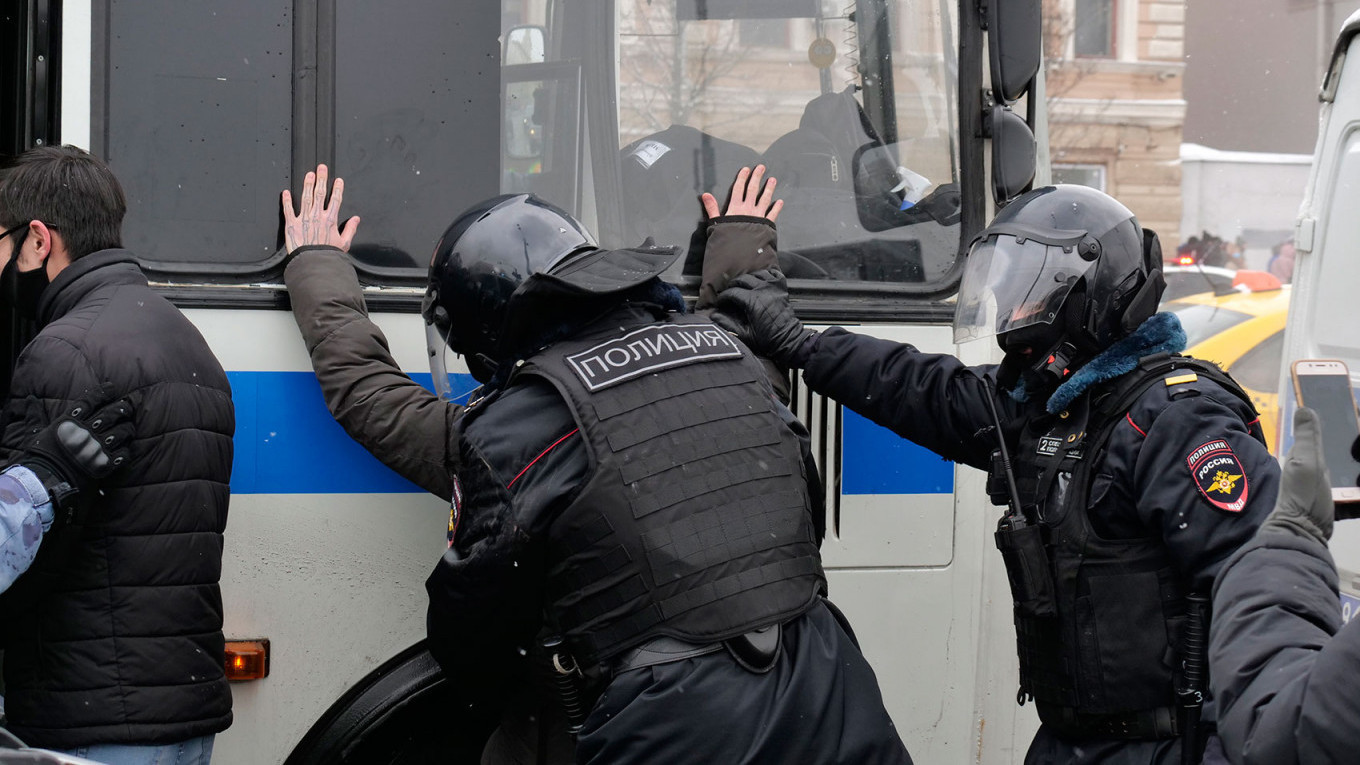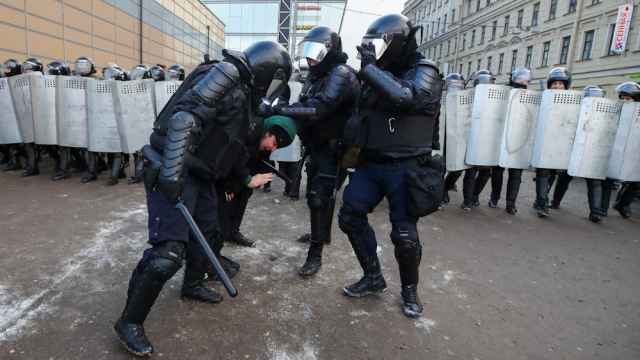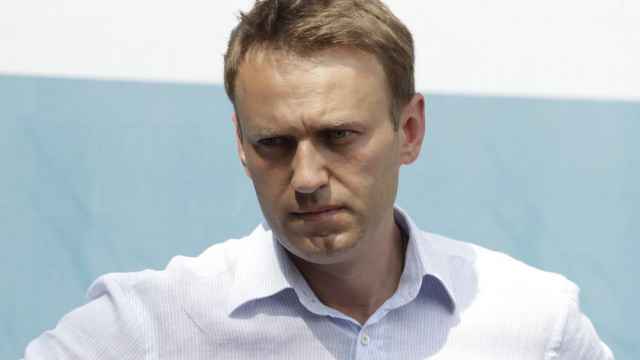A Moscow court will decide Tuesday whether the Russian opposition leader, Alexei Navalny, stays in detention. The hearing will take place against a background of two weeks of nationwide protests, record numbers of detentions, a flood of images of injured and detained protesters and journalists, and a flurry of criminal cases. Given Russian courts’ record of ruling in favor of the state, it seems extremely likely that the court will rule that Navalny violated the conditions of his probation and can be sent to serve a long prison term.
This will inevitably fuel the outrage and discord among people in Russia who are truly exhausted by a cornucopia of injustice, corruption, inequality and hopelessness that were only aggravated by the government failings and the plummeting economy during the Covid-19 pandemic.
Navalny’s imprisonment in these circumstances would not only enrage his supporters, but also others, who may not support his policies, triggered by the sheer magnitude of the injustice against him.
Since Navalny’s return, his supporters and other civic activists have continually expressed outrage and frustration over his treatment. To them, the unjust treatment of Navalny is symptomatic of far wider injustice and corruption of the country’s law enforcement and judicial systems. They have been organizing unprecedented, country-wide protests despite equally unprecedented detentions, police raids, harassment, intimidation, and police brutality.
In August, Navalny was nearly fatally poisoned in an attack independent investigators allege was organized and executed by Federal Security Service (FSB) operatives. He was evacuated to Germany in a coma, recovered there in a clinic for several months, and on January 17, returned to Russia to face widely anticipated arrest upon arrival. At an extraordinary hearing at a police station, a judge authorized his detention for 30 days pending tomorrow’s hearing to determine if his suspended sentence should be revoked and replaced by prison time. Several prominent lawyers condemned the ruling as unlawful.
The suspended sentence relates to a 2014 case, in which Navalny and his brother were convicted of fraud and money laundering, charges the European Court of Human Rights condemned as “extensively and unforeseeably construed to their detriment,” following a fundamentally unfair trial that was “flawed with arbitrariness.” The Russian court handed Navalny a 3.5 year suspended sentence with a 5-year probation period. The verdict came into force following an unsuccessful appeal in February 2015. In 2017, Navalny’s probation period was extended until the end of December 2020, because he took part in unsanctioned protests.
Using that extension, the Russian Federal Penitentiary Service put Navalny on a wanted list for failure to report to a probation officer while he was recovering in Germany on the last day before his probation period expired. Now authorities are seeking to substitute the suspended sentence, that he in principle has already served, with fresh prison time of the same duration as the original sentence. If Navalny is handed prison time tomorrow, then effectively he will be serving two sentences for the same alleged crime.
Nevertheless, the General Prosecutor’s Office stated today that the Penitentiary Service application for imprisonment of Navalny is “lawful and justified.” In parallel they noted that another criminal case has been opened against him on libel charges, for which he may face mandatory labor or a fine.
Navalny’s team has called on people to support Navalny at his trial tomorrow morning in Moscow. If the past is any guide, it’s likely many people will gather, some of whom are already galvanized by recent developments. If there is a harsh ruling, it may serve as a spark to more protests.
It seems as though Russian authorities are inept at any response other than to brutally suppress peaceful protest. If they continue on this path, we are likely to see an ever-escalating cycle of police violence, detentions, and prosecutions that further fuel public frustration and protest. But it is never too late for Russian authorities to break this cycle, by honoring their human rights obligations, allowing peaceful protest, and constructively engaging with people who have legitimate grievances.
A Message from The Moscow Times:
Dear readers,
We are facing unprecedented challenges. Russia's Prosecutor General's Office has designated The Moscow Times as an "undesirable" organization, criminalizing our work and putting our staff at risk of prosecution. This follows our earlier unjust labeling as a "foreign agent."
These actions are direct attempts to silence independent journalism in Russia. The authorities claim our work "discredits the decisions of the Russian leadership." We see things differently: we strive to provide accurate, unbiased reporting on Russia.
We, the journalists of The Moscow Times, refuse to be silenced. But to continue our work, we need your help.
Your support, no matter how small, makes a world of difference. If you can, please support us monthly starting from just $2. It's quick to set up, and every contribution makes a significant impact.
By supporting The Moscow Times, you're defending open, independent journalism in the face of repression. Thank you for standing with us.
Remind me later.








